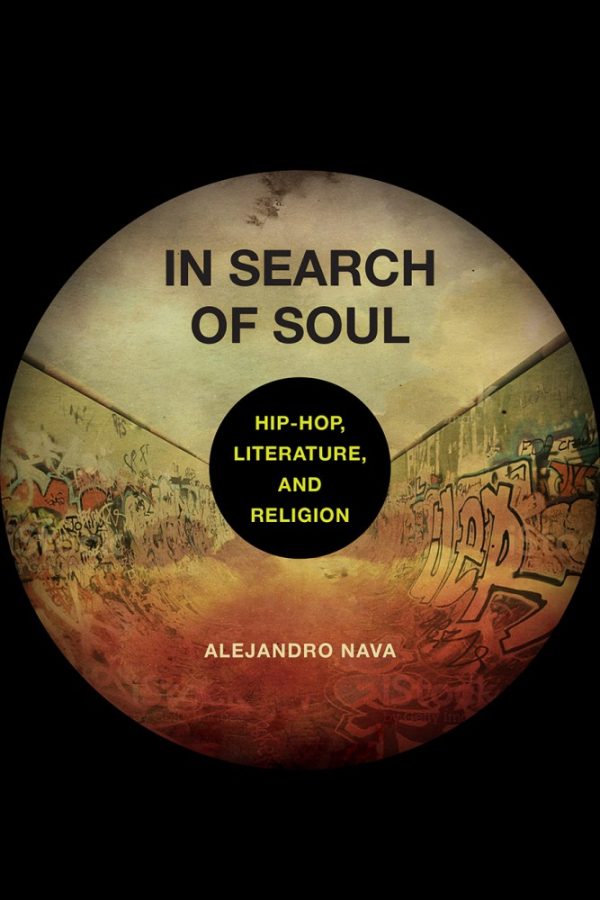In his new book, University of Arizona professor Alejandro Nava shines light on the enigmatic concept of “soul” and relates religious practice and history to the influence of soul on Latin and African American music, specifically hip-hop.
“In Search of Soul: Hip-Hop, Literature and Religion” discusses the history and significance of soul found in traditional and contemporary art and literature, particularly within Christianity and Judaism. Nava, a professor of religious studies, suggests that this sense of spirituality is largely present in early and modern hip-hop and is heavily tied to perceptions of struggle, justice, liberation and self.
“Hip-hop opens a window into so many issues of our day,” Nava said.
These can be Issues of race, culture, injustice, inequality, poverty, gender issues and spirituality, as Nava’s book suggests.
The book is structured in two sections: “Sacred Histories of the Soul” and “Profane Accents of Soul.” The first section of the book is an exploration of soul through traditions, literature and recorded histories of the dimension of soul. Nava said the study of these histories began to shape his understanding of soul and what it means to gain a spiritual sense of self. Largely including the expression of soul in Judaism and Christianity, Nava analyzes the concept of soul as a human and spiritual discovery.
RELATED: College of Humanities hosts month-long festival
The second section explores soul as more of a cultural product, relative to traditional and contemporary hip-hop, R&B and Latin-influenced music. Nava points out the spiritual influence that the concept of soul had on traditional Latin and African American-inspired music and contemporary hip-hop. Musical styles like blues and gangsta rap are a product of each artist’s reality and represent their feelings toward the way their environment perceives and treats them.
Some of these styles may reflect a total absence of spirituality, while others adopt significant reference to spirituality and the finding of soul, according to Nava. The early use of sampling during hip-hop’s origins was a way for artists to pull particular sounds or verses from earlier songs and then deliver poetry and add their own lyrical representation of self-worth, self-redemption and self-appreciation.
According to Nava, during the 1950s and ’60s civil rights movements, soul regularly surfaced in music and art; often, the result of segregation and prejudice on the human soul were expressed in music. Nava said these expressions sometimes seemed explicit or extreme because they were the product of overwhelming oppression.
Nava said the notion of soul was used to “resist and to oppose histories of mistreatment and oppression.”
While the common perception of hip-hop is that it’s a secular genre, Nava said “it’s surprising how often the idea of God surfaces in the music.”
Hip-hop has gone through stages of absence and then resurgence of spirituality and religious language, according to Nava. More recently, he said, this preoccupation has surfaced in artists such as J. Cole, Kendrick Lamar, Chance the Rapper and Kanye West.
“I would say that there has actually been a resurgence of the kind of religious dimensions of hip-hop in the contemporary scene,” Nava said.
Nava said that, especially with artists who wrestle with suffering and injustice, the idea of God is particularly pervasive. Nava said the hip-hop generation fits the mold of “spiritual but not religious, so that there is still a very profound preoccupation with spiritual questions.”
RELATED: Local rapper talks new album and the importance of family
Nava said a key moment that influenced his decision to write the book was when he was working on his Ph.D. at the University of Chicago in the 1990s, when he wandered into an “On God and Hip-Hop” lecture by Michael Eric Dyson, a now well-known scholar.
“That was the first time that I actually heard somebody speak really thoughtfully and intelligently and provocatively about the intersections of religion and hip-hop,” Nava said. “From that moment on, it kind of planted a seed in my head.”
He said Dyson’s lecture helped him realize that hip-hop commented on some of the issues in the neighborhood he was living in.
“Many of the issues that hip-hop was addressing and speaking of were issues that were profoundly relevant to the world that was just a stone throw from the University of Chicago,” Nava said.
The University of Chicago is located within southside Chicago, where Nava witnessed situations of poverty and crime. He said universities do not always do a good job of addressing the problems and needs of the community they are surrounded by.
“What is the value of knowledge and university education if it can’t somehow make a difference in the world that we find ourselves in?” Nava said.
Nava said he thinks the administration at the UA could be more vocal in representing the concerns of the Tucson community, particularly among underrepresented groups like first-generation and DACA students.
A UA grad himself, Nava said studying at a university is a time to develop your soul, or human spirit. He said he hopes readers will gain a greater awareness of the world and their spiritual self by reading the book, while also developing more capacity for compassion and empathy.
Nava created the Africana Studies and Religious Studies course 335 “Rap, Culture, and God” at the UA in 2005, during a time when hip-hop was not really being studied at universities. Now, there are several courses at the UA that include hip-hop analysis. In 2012, the UA introduced the nation’s first hip-hop minor at a major university. Nava said the last 10 years has seen a huge growth in hip-hop studies.
Follow Isaac Andrews on Twitter









